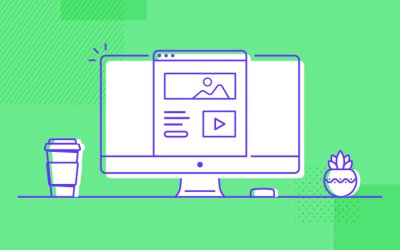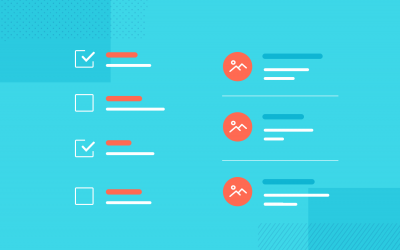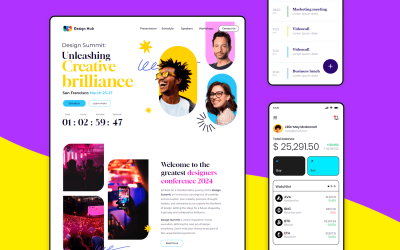Web prototyping, UI design, front-end development… just where do a UX/UI designer’s skills end and a developer’s begin? We asked 11 UX experts to give us their take
Designers and developers. It’s complicated. Communication and collaboration can be hard to get right. Would workflows be smoother if designers knew front-end code, for example? Yep, that old chestnut.
Here at Justinmind, we’re all about making life easier (and hand-off faster!) for design and development teams. That’s why we launched the Justinmind developer friendly interface. Now UX/UI designers can automatically generate all the information developers need, from specs to assets, right there in your prototypes. Check out the video to find out more!
But would it make design-development hand-off even smoother if UX/UI designers had front-end skills? Is it enough to have bare bones HTML/CSS knowledge, or do UXers have to get their hands dirty, deep down in JavaScript, page structure and accessibility? Does front-end knowledge mean you can build better user experiences? Does it help boost your skills with your go-to prototyping tool?
We have a sneaking suspicion that UXers will work better and hand-off faster when they know how their wireframes and prototypes will be used by front-end teams. But we asked 11 UX experts to weigh in.
Tiago Marques, Senior UX Designer, Lloyds Banking Group
Should UI and UX designers learn front-end development?
The more a designer understands the medium they’re working with, in general the better off they’ll be. Having said that, unless you’re planning on developing your own killer app, have a genuine hunger for picking up a programming skill or truly believe this is going to be an asset to your vocational development… I’d say don’t.
Really, you have 24 hours in a day like everyone else, what problem are you trying to fix by learning to code? Prototyping tools have gotten remarkably sophisticated at this stage and you should be working closely with developers anyway to understand the intricacies of your project.
Why (not)?
I did front-end together with UX/UI early in my career and did enjoy the code puzzle-solving and the creative discussions with the back-end devs (mostly, I enjoyed occasionally proving them wrong). But I also remember feeling pressured to compromise the amount of time, thinking and care on the UX/UI side so that I had enough time to properly do the front-end coding.
It felt much more rewarding once I landed roles where I could focus on the finer aspects of UX and hone my skills… to the point I still cringe when a recruiter tells me they’re looking for someone that can do UX, UI and front-end. Their client either doesn’t understand the value of a multidisciplinary team or they just trying to pay as little as possible. Or they’re looking for a creative technologist, not a UXer, which is a completely different story.
Find out how Mortal Kombat inspires Tiago to build better Fintech experiences
Conor Ward, Head of UX & Design, Centrica (British Gas, Bord Gais, etc)
Should UI and UX designers learn front-end development?
Of course they should, but only to a degree…
Why (not)?
How can you design anything if you don’t know the basics of how that thing works?
Design is problem solving for humans, so understanding the problem is key. However, understanding the system and its capabilities/limitations is also essential to be able to create the best solution possible. For example, how could an architect design a building without knowing how the plumbing and electrical systems need to function?
This does not mean UXers need to be able to produce production code; far from it. This ask would be too much in any large scale commercial environment. However, how can you genuinely collaborate with your developer colleagues if you have no empathy about their tools or an understanding of their world. Knowing where a fuse box should be ideally located in relation to the humans in the building is very different to solving low voltage pathways and direct current power distribution issues.
Don’t be afraid designers, dip your toe in the dark waters! Just don’t expect to be amazing, great quality development ain’t easy! Leave the actual production work to the experts.
Read more from Conor in our illuminating Q&A
Maggie Paparella, UX Designer, iPipeline
Should UI and UX designers learn front-end development?
I think it can’t hurt to help have a basic understanding of front-end development, but I don’t think it is necessary to perform it now that there are solutions that can help you visualize and communicate ideas.
Why (not)?
So you can recommend and build ideas based on feasible solutions. Know potential boundaries. Be more effective collaborating with development teams. I think developers also find an appreciation for those that understand their language too: you aren’t trying to push ideas on them ‘just because’ – you are trying to work with them
Judit Casacuberta, UX Team Lead, Scytl
Should UI and UX designers learn front-end development?
No, but it doesn’t mean that learning it isn’t very helpful
Why (not)?
I don’t think a UX designer has to learn front-end development. I’ve always believed it’s better have an expert for each area than one expert with little knowledge of several areas. At the same time, I strongly believe that knowing a little bit of ront-end can help you to design more realistic UIs and smooth the process between conceptualization and implementation.
Lee Wells, User Experience Specialist, Humana
Should UI and UX designers learn front-end development?
I have been engaged in this conversation for at least 6 years now. My answer is no, they should not have to learn front-end development.
Why (not)?
I believe there are many things UX researchers and designers bring to the table that is not just “I know how to do UX”. Same for devs: I can’t just go take a few classes on writing code and say I’m a developer now.
I worry when I see companies looking for the “Unicorn”. The perfect unicorn does not exist. You can’t be the best UXer you can be if you have to fit development time into your projects. Same with development. The smaller the company is, the closer they can probably get to finding one person to do it all, with longer project windows and fewer projects overall. But, it still isn’t the perfect unicorn. Just a one horned, large goat that is overworked.
“The perfect unicorn does not exist. You can’t be the best UXer you can be if you have to fit development time into your projects.”
Kenny Chen, Director of UX Design, Bankrate
Should UI and UX designers learn front-end development?
It depends on what you mean by front-end development. If it means production-level code, then absolutely not. There are too few hours in the day to produce quality design and code. Not to mention keeping up with the constantly changing technology and tools.
I often get asked for advice from people looking to get into design. One thing I always tell them is to figure out how they can separate themselves from the crowd. Learning front-end development is one way to stand out. But it’s just one skill of many that a designer can learn and add to their toolkit.
Why (not)?
You don’t have to know code to be a great designer. Designers that understand enough code do have an advantage. They can speak the same language as the developers, design in the browser, and prototype their ideas.
Designers can also make more intelligent design decisions. They have a better understanding of the possibilities, limitations, and the tradeoffs.
“Learning front-end development is one way to stand out. But it’s just one skill of many that a designer can learn and add to their toolkit.”
Nick Babich, Software Developer and UX Blogger
Should UI and UX designers learn front-end development?
Of course, it depends on the role. We have a lot of different activities under the UX design umbrella. For UX designers who involved mostly in information architecture, user research or interviewing, front-end design might not be so important as for UX designers who’re directly involved in prototyping and UI design. For them, the skills of front-end development are essential.
Why (not)?
It’s important to have a developer’s perspective on design: understand what’s possible/impossible to create, and evaluate the effort required for the development. In most cases, when UX/UI designer has front-end development skills she’s able to come up with a better solution (both from the UX and Developer point of view).
Boris Iglesias, User Experience Architect, Human Factors International
Should UI and UX designers learn front-end development?
The short answer is Yes; of course, with a clear learning objective. For a UX designer, it means understanding what’s under the hood but not becoming an expert mechanic.
Why (not)?
Web design will continue to be a commodity, platforms like WordPress, Squarespace or even Bootstrap will keep getting better, to the point where front-end development will be unnecessary.
Read how Boris uses Justinmind’s Enterprise features to up his UX game.
Arun George, Voice UX Designer/Ux Consultant, VoxGen
Should UI and UX designers learn front-end development?
I suppose this depends on which part of experience design you’re part of. For example, if you’re designing for voice experience, voice is the UI and the user-centered design process would be the UX portion. In this scenario, not only it helps to know how to design and write conversational dialogs (UI), but it’s also beneficial to know the user-centered design process (UX) behind it.
Why (not)?
When it comes to understanding development, it’d help to know the architecture behind it. In other words, the more you understand how Alexa Voice Service (AVS) works, the better you can design and interact with developers who will help you build your voice interfaces. In summary, high-level understanding of front-end and back-end can always enhance your design career.
Siraj Salim, Head of UX at Science Navigation Group
Should UI and UX designers learn front-end development?
In this industry; there is an increasing demand for the combination of these skills. Be it for the purpose of getting a job somewhere as a UX/UI designer or working as a freelancer or even considering opening your own design agency.
The answer to this question really varies based on the individual circumstances of a designer. For example:
- If you are a freelance designer, knowing how to do some front end development might land good projects.
- If you are working in a startup, the combination of being a designer + frontend developer would definitely help the startup save costs and help streamline the process (which most startups lack during their early days). Obviously making you their preferred candidate if/when applying for a job.
- If you are working in a mid to large scale organisation; it is very likely that you would have dedicated (fulltime) front-end developers. So, as a designer, knowing to do some front-end development would help you do your job better.
Having said that; there is also this question of the level of expertise needed in front-end development, in the above scenarios. If we are to measure this on the scale of 1 to 10; 10 being an expert and 1 being zero to minimum knowledge of frontend development;
- As a freelance designer [between 7 to 10]: you need to know a great deal of front-end development if you are to land a job based on the combination of UI + frontend development.
- If you are working in a startup [between 5 to 7]; you could help with some front-end development and have a helping hand from another front-end developer within your team.
- If you are working in a mid to large scale organisation [3+]; possessing some front-end development skill would help you communicate your ideas better across the different teams.
In most cases, I’d say you do not have to be a hands on front-end developer; possessing a good working knowledge of front-end would also take you long way. When coming up with a UX or a UI; if you can understand what is practically possible to develop (implement) and factor in the time and cost constraints of the project/product, that would be sufficient.
Also, there are a lot of tools out there which allow you to communicate your idea for interaction and design without needing to code or be a front-end developer.
Andrea Picchi, Former Lead Experience Designer at Sony
Should UI and UX designers learn front-end development?
I’m not against it in theory, but in practice it is a waste of time. Being able to prototype your own ideas is a must-have skill but that doesn’t imply learning code. As designers, we already have many skills to acquire and to master that already go beyond our lifetime window. We should stay focused on the necessary ones.
Related Content
 Crafting landing pages that convert doesn't have to be tough. Here’s our snapshot of 30 landing page examples with awesome UX that nailed it!12 min Read
Crafting landing pages that convert doesn't have to be tough. Here’s our snapshot of 30 landing page examples with awesome UX that nailed it!12 min Read How important are lists in UI design? How much do they affect usability and what’s the best way to design them? In this guide, we'll explore the elements that make up a great list UI design and look at some inspiring examples!15 min Read
How important are lists in UI design? How much do they affect usability and what’s the best way to design them? In this guide, we'll explore the elements that make up a great list UI design and look at some inspiring examples!15 min Read UI design examples that bring some serious inspiration. From parallex scrolling to delicate animations - this list has it all to get you inspired!8 min Read
UI design examples that bring some serious inspiration. From parallex scrolling to delicate animations - this list has it all to get you inspired!8 min Read


